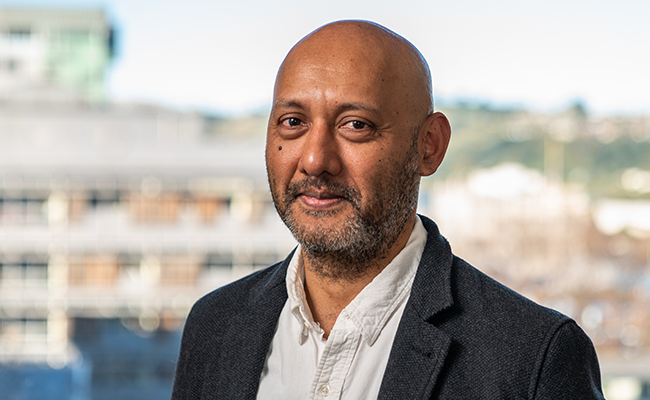Friday 11 November 2022 10:50am

Associate Professor Patrick Vakaoti shares why ethical engagement with indigenous peoples and decolonising the global health curriculum is of vital importance ahead of this year’s Otago Global Health Institute (OGHI) conference.
Starting on Tuesday, 15 November, the two-day conference will see Associate Professor Vakaoti chair a panel of three other prominent speakers from across New Zealand and the Pacific on this subject.
Based in the Division of Humanities Sociology Programme, he explains that there are increasing calls to decolonise global health to make it more just and inclusive.
“Many indigenous populations now have to contend with the reality of historical exploitation, discrimination and unethical practices,” Associate Professor Vakaoti says.
“These are manifested in the contemporary socio-economic, cultural, political and wellbeing realities of many indigenous communities.
“Whilst we advocate for ethical engagement, indigenous peoples have many lessons on how we can engage ethnically with ourselves as peoples and with the fragile environment around us. This is very much needed because university curriculum is predominantly Western.”
He goes on to explain that this privileges a particular form of knowledge with global health being no exception.
Associate Professor Vakaoti says that decolonising global health is a slow process which requires commitment from academics and institutions who need to be asking fundamental questions like: Who produces University curriculum? How is this taught? What is the demographic of the students? Where are graduates working? Who is funding and publishing global health research?
He believes that, in Aotearoa New Zealand, universities could begin this process by looking at concepts like whakapapa, manaakitanga, kaitiaki and aroha. Fundamentally, we should be asking ourselves what does being Tiriti-led look like.
Associate Professor Vakaoti’s initial academic journey began with research into street-frequenting young people in Fiji, or ‘street kids’, who are predominantly young people from low socio-economic backgrounds.
“For most of these young people the streets are their main space of belonging and so I adopt a social justice approach to understand their struggles and aspirations.
“I have since expanded my research to look at young people, their political participation and, more recently, the place of young people in university. My interest in ensuring institutions work in a just and equitable way led to my engagement with the OGHI.”
Speakers on the panel he will be facilitating at the conference include Professor Suzanne Pitama, the Head of the University of Otago’s Christchurch Campus; Associate Professor Donald Wilson, the Director of the Fiji Institute of Pacific Health Research, College of Medicine, Nursing and Health Sciences, Fiji National University; and Associate Professor Rosalina Richards, the Deputy Director of the Va’a o Tautai – Centre for Pacific Health and Co-Deputy Director of the Coastal People Southern Skies Centre for Research Excellence.
“The OGHI conference is our premier annual event where researchers, professionals, community members and students gather to present their research and develop relationships,” Professor Philip Hill says.
As founding Director and Co-Director of the Centre for International Health at the University of Otago, Professor Hill is excited to see what might come from this year’s event.
“This is the fourteenth annual OGHI conference and so we are eager to discuss the dominant perceptions of global health and constructively engage in conversations that ask the hard questions,” Professor Hill says.
“We plan to push boundaries in our conversations, making sure that our research is of high quality and contributes to an equitable world where everyone can access optimum health care and have a voice in determining their wellbeing.
“Furthermore, OGHI dreams of a world where health problems are solved by those who are most affected by them. This requires a fundamental rethink of how Global Health research and research collaborations operate.”
- Kōrero by the Otago Business School Communications Adviser, Kelsey Schutte.
Otago Global Health Institute 2022
